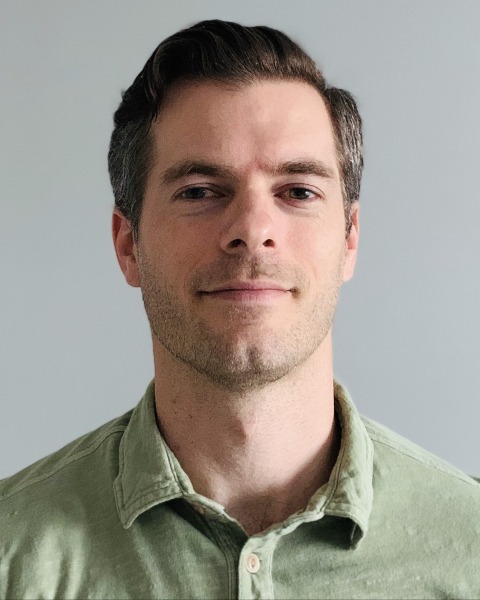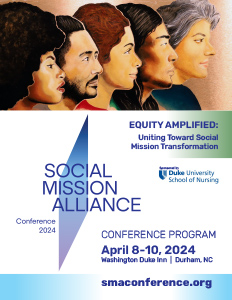Concurrent Breakout Sessions
La Academia- As a model addressing workforce shortages in mental health, this interdisciplinary, experiential learning cohort demonstrates evidence of improved clinical skills and decreased burnout.
Monday, April 8, 2024
11:20 AM - 11:35 AM East Coast USA Time
Location: Matlock

Juan Prandoni, PhD, HSP (he/him/his)
Training Director
El Futuro
Durham, North Carolina, United States- MH
Molly Hayes, M.Ed, LCMHCS
Director of Clinical Enhancement Services
El Futuro
Durham, North Carolina, United States
Presenter(s)
Proposal: Recent directions in behavioral health care point to the importance of employing culturally responsive approaches to reduce treatment disparities among minoritized populations. Despite this growing awareness, current training curricula are limited in their capacity to adequately prepare professionals to serve minoritized communities, including the Latine community which is now the largest minoritized population in this country. These limitations only expand as we focus on the growing needs of the Latine community.
At our community Latine mental health clinic, we have repeatedly encountered so-called “professional pipeline” issues whereby the number of early-career clinicians that are both bilingual and have specific training in evidence-based Latine mental health approaches is scarce. The resulting dynamic is often one where new clinicians feel overwhelmed by complex caseloads that increase burnout rates, decrease service quality, and maintain current mental health disparities among Latines.
In light of this, our clinic took an evidence-based pedagogical approach to developing a training curriculum, “La Academia” (LA), aimed at reducing training gaps among early-career practitioners to improve service provision quality. LA consists of learning activities during a clinician’s first year that function alongside client care responsibilities to provide scaffolded professional development opportunities. Leveraging both evidence-based Latine mental health approaches and empirically validated treatment adaptations, the curriculum balances didactic teaching sessions with experiential learning opportunities that provide space for integration and practical application of the skills and knowledge being taught.
Juan Prandoni (Ph.D, HSP) Training Director and Molly Hayes (LCMHCS) Director of Clinical Enhancement Services at El Futuro discuss the impacts of the evidence-based pedagogical approaches used in this training curriculum as well as a overview of mixed methods report of our evaluation of LA. Results show that the 17 participating clinicians experienced a range of positive impacts, including increased culturally responsive knowledge and skills, improved clinician confidence, reductions in self-reported burnout ratings, as well as increased workplace belongingness and job satisfaction. It is our hope that the La Academia curriculum serves as a model for future like-minded efforts aimed at addressing current training gaps that will improve service delivery.
At our community Latine mental health clinic, we have repeatedly encountered so-called “professional pipeline” issues whereby the number of early-career clinicians that are both bilingual and have specific training in evidence-based Latine mental health approaches is scarce. The resulting dynamic is often one where new clinicians feel overwhelmed by complex caseloads that increase burnout rates, decrease service quality, and maintain current mental health disparities among Latines.
In light of this, our clinic took an evidence-based pedagogical approach to developing a training curriculum, “La Academia” (LA), aimed at reducing training gaps among early-career practitioners to improve service provision quality. LA consists of learning activities during a clinician’s first year that function alongside client care responsibilities to provide scaffolded professional development opportunities. Leveraging both evidence-based Latine mental health approaches and empirically validated treatment adaptations, the curriculum balances didactic teaching sessions with experiential learning opportunities that provide space for integration and practical application of the skills and knowledge being taught.
Juan Prandoni (Ph.D, HSP) Training Director and Molly Hayes (LCMHCS) Director of Clinical Enhancement Services at El Futuro discuss the impacts of the evidence-based pedagogical approaches used in this training curriculum as well as a overview of mixed methods report of our evaluation of LA. Results show that the 17 participating clinicians experienced a range of positive impacts, including increased culturally responsive knowledge and skills, improved clinician confidence, reductions in self-reported burnout ratings, as well as increased workplace belongingness and job satisfaction. It is our hope that the La Academia curriculum serves as a model for future like-minded efforts aimed at addressing current training gaps that will improve service delivery.
Learning Objectives:
- Identify gaps in training programs and how have greater focus on a) addressing gaps in those programs b) infusing issues of health equity and social mission in those programs
- Consider ways that health providing organizations can build supportive workplace culture in hybrid, multi-site clinical work environments and how these efforts address health equity considerations.
- Identify ways their organization could support inter-disciplinary/inter agency collaborations to ensure each level of service delivery is working from a whole-patient perspective, vs. clinical silos.
- Identify ways their organization can assessing the most frequently asked clinical questions of new clinicians and use creative means to support clinical learning in those areas.

